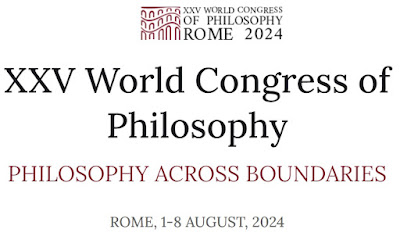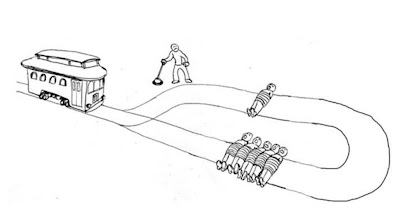Judith Jarvis Thomson
Judith Thomson’s work is primarily in moral theory and metaphysics. Her most recently published book is entitled “Normativity” (and that’s, of course, its topic), published in 2008. Her most recently published article is on the trolley problems; it is a response to Frances Kamm’s Tanner Lectures, and was published in Kamm’s “Trolley Problem Mysteries” in 2015. Judy is currently working on a book entitled “Ethics”, which is concerned with moral theory and the metaphysics underlying certain assumptions that moral theory rests on.
Judith Jarvis Thomson (October 4, 1929 – November 20, 2020) was an American philosopher who studied and worked on ethics and metaphysics. She is credited with having contributing to invent (along with Philippa Foot) the trolley proble. She was elected a member of the American Philosophical Society in 2019.
Early life and education
Thomson was born in New York City, on October 4, 1929. Her mother Helen (Vostrey) Jarvis was an English teacher and her father Theodore Jarvis was an accountant Thomson's mother died when she was six.
Thomson graduated from Hunter College High School in January 1946. She received her BA from Barnard College in 1950, a second BA at Newnham College, Cambridge in 1952, an MA from Cambridge in 1956, and a PhD from Columbia University in 1959. All of her degrees were in philosophy.
In 1960, Thomson began teaching at Barnard College In 1962, she married James Thomson, who was a visiting professor at Columbia University. Judith and James spent the 1962–1963 academic year at Oxford, after which they moved to Boston. Judith taught for a year at Boston University and, in 1964, was appointed to the faculty at the Massachusetts Institute of Technology (MIT) where she was Laurence S. Rockefeller Professor of Philosophy. James was also appointed a professor of philosophy at MIT. The Thomsons divorced in 1980; they remained colleagues until James's death in 1984.
Career
Thomson was a visiting professor at the University of Pittsburgh (1976), UC Berkeley School of Law (1983), and Yale Law School (1982, 1984, 1985). She has held fellowships from the Fulbright Foundation (1950–1951), the American Association of University Women (1962–1963), the National Endowment for the Humanities (1978–1979, 1986–1987), the Guggenheim Foundation (1986–1987), and the Center for Advanced Study in Oslo, Norway (1996). In 1989, Thomson was elected to the American Academy of Arts and Sciences, and in 1992–1993 she served as president of the American Philosophical Association (APA), Eastern Division. In 1999, she gave the Tanner Lectures on Human Values at Princeton University; her lecture was titled "Goodness and Advice". Thomson taught at MIT for the majority of her career, remaining there as professor emerita.
In 2012, Thomson was awarded the Quinn Prize by the American Philosophical Association.
In 2015, she was awarded an honorary doctorate by the University of Cambridge, and in 2016 she was awarded an honorary doctorate by Harvard University. In 2016, she was elected a Corresponding Fellow of the British Academy. Thomson died on November 20, 2020, at the age of.
Philosophical views
Thomson's main areas of research were moral philosophy and metaphysics. In moral philosophy she has made significant contributions to meta-ethics, normative ethics, and applied ethics.
"A Defense of Abortion" (1971) introduces one thought experiment for which Thomson is especially well known. The paper asks the reader to imagine that her circulatory system has, without her consent, been connected to that of a famous violinist whose life she must sustain for nine months. Philosopher Ben Burgis argues that the paper redirects philosophical attention from the rights of the fetus to that of the pregnant woman.
In response to "A Defense of Abortion", Philippa Foot argued that negative non-provision of service, as in the case of the violinist, is different from active killing, or interference, as in abortion. John Finnis replied to "A Defense of Abortion" in "The Rights and Wrongs of Abortion: A Reply to Judith Thomson".
She is credited with having contributing to invent (along with Philippa Foot) The trolley problem
Selected publications







Comments
Post a Comment